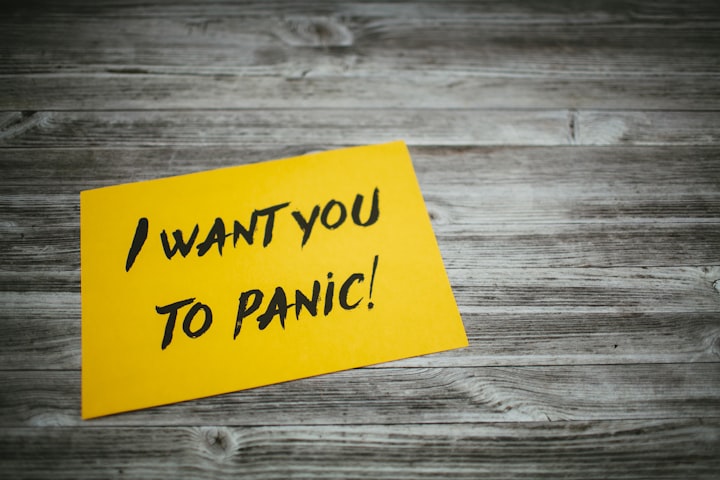Stigma Reduction Can Have Different Outcomes
Raising awareness isn’t the same as normalisation.

Things have been said in the past few months that really got me wound up about the different types of stigma reduction. It consists of raising awareness, including being comfortable talking about the topic and normalization, including an acceptance of the topic.
Ignorance is bliss in some cases, but it shouldn’t be described as such when discussing mental health.We are all ignorant to some types of mental illnesses, it’s inescapable. Even if you are ignorant to recognizing some common mental illnesses, basic empathy should at least be a factor in the discussion.
I overheard a conversation one evening consisting of the term “social awkwardness”—a term I really disagree with. The person in question has very clear social anxiety. Does that official term not hold enough meaning and importance to consistently be used when recognized? I personally would rather you refer to my illness as “social anxiety” rather than “social awkwardness” and “anxiety” instead of “anx” (I’ll talk about this later on).
I can fully understand that using the term wasn’t intended as a form of mockery or anything other than a label in replacement of what it officially is. But failing to recognize an illness for what it is and isn’t is just straight up ignorance. Being able to see and acknowledge the other side of what you’ve spoken about can show a lot about a person and/or a group of people.
What really rattled my cage was hearing talk about how they so obviously made him comfortable by asking him to sit with them a couple of times. Then expecting him to voluntarily sit with that group out of his own free will every other time after. I’m sorry, but that isn’t how anxiety works.
Because I’m a lot closer to one of the topics spoken about, understand and relate to the other side of their argument as if I was the one in question, it hit pretty close to home. I felt for the boy, I really did. I wanted to speak up and say something but I couldn’t, considering the irrelevant circumstances at hand.
Which brings me onto my next point:
Instead of speaking to the group, I spoke about my disagreements with a friend who was involved in the overheard exchange. She dismissed my statement straight away and the only thing she could say about her ignorance was “Well, [she doesn’t] have [anxiety], so [she doesn’t] really understand.”
I mean, that’s fine and understandable. If you don’t have an illness then you won’t know what it’s like to live with that specific condition—basic common sense. But this is where the empathy comes into play.
No one’s asking anyone to put themselves in someone’s shoes and try to grasp a complete understanding of the progression of a foreign illness. But it wouldn’t hurt to at least try to understand that it must be hard to go about some daily activities with that kind of disorder.
Anxiety isn’t all that difficult to recognize in some cases. A lot of people have anxiety but in no way, shape or form does that “normalize” the illness. I got pretty offended when I told someone that I have anxiety and they replied with “Yeah, I could tell you were anx.” Now, call me petty, but I don’t like that an illness I have had been reduced to a three letter nickname.
Anxiety can affect people in major ways and I don’t appreciate this nickname that was and is still very new to me. To be fair, I’ve not heard that term being used by anyone else during my past year at university.
I looked past this during the conversation, but it really stuck with me; I do think about it a lot. Now, there is nothing wrong with the person who used this apparent term, I guessed that it might’ve been part of their dialect. And I fully understand that no offense was meant by the use of “anx,” hence why I didn’t bring it up. But I did feel like it normalized the illness a lot in a way that it shouldn’t have.
I was talking about this topic a few days ago with a friend of mine. To quote him:
"There’s a difference between reducing stigma and just dismissing the illness."
I saw in this sentence that it wasn’t just me who felt the way that I do regarding the matter at hand. I don’t know how many more people agree with me, but I know that it’s something that needed to be said.
Here’s where I think the difference between normalization and stigma reduction come into play, using sexual orientation and mental illness, respectively, as examples:
Sexual orientation, by reducing the stigma, should have an outcome of normalization. Treat everyone the same. Being heterosexual is no different to being homosexual, bisexual, transsexual or any other sexuality. Treat everyone how you normally would, regardless of who they prefer.
Normalize it. Erase the stigma.
Poor mental health, by reducing the stigma, should have an outcome of a larger awareness, with more people being comfortable talking about it openly. Poor mental health is a widespread issue, but a lot of people don’t feel comfortable talking about it because of the stigma surrounding it. Raise awareness. Erase the stigma but don’t simultaneously dismiss it.
Just because the illness is invisible, doesn’t mean it isn’t real. It quite literally states that a “mental illness” is a legitimate illness. So why would anyone feel it necessary to normalize an illness by giving it a nickname that isn’t its proper abbreviation? For example, OCD instead of Obsessive-Compulsive Disorder or ADHD instead of Attention Deficit Hyperactivity Disorder, to name a couple. These kinds of abbreviations make complete sense due to the mouthful it’d be to consistently say the full terms. Anxiety doesn’t take a lot to say, so why shorten it down to “anx”?
See, I know others saying things differently to how I say them are usually purely down to dialect and the community one’s raised in, but I still can’t wrap my head around some of the things I hear and how casually they’re spoken without justification.
Honestly, I understand that I’m just personally offended and this piece is just me going on about the offense I feel. But as mentioned previously, I know I’m not the only one who feels like that regarding this debate. I hope it opens up people’s eyes to being more careful about the word choice used. And if not, I hope it informs people that there are at least two kinds of outcomes concerning stigma reduction.
I don’t say any of this to attack anyone in a personal manner. It’s just been on my mind for a handful of months and I can’t understand the necessity of shortening a word like that or not using the right terminology.
About the Creator
Bushra Shahriar
A 22-year-old student studying at Keele University - writer and poet.






Comments
There are no comments for this story
Be the first to respond and start the conversation.